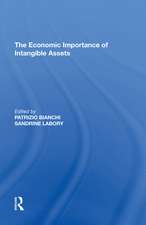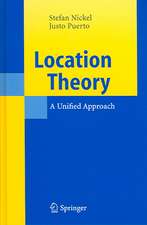Theories of Surplus and Transfer (Routledge Revivals): Parasites and Producers in Economic Thought: Routledge Revivals
Autor Helen Heslopen Limba Engleză Paperback – 12 oct 2020
| Toate formatele și edițiile | Preț | Express |
|---|---|---|
| Paperback (1) | 405.25 lei 6-8 săpt. | |
| Taylor & Francis – 12 oct 2020 | 405.25 lei 6-8 săpt. | |
| Hardback (1) | 993.14 lei 6-8 săpt. | |
| Taylor & Francis – 28 iul 2014 | 993.14 lei 6-8 săpt. |
Din seria Routledge Revivals
- 9%
 Preț: 903.80 lei
Preț: 903.80 lei -
 Preț: 200.66 lei
Preț: 200.66 lei -
 Preț: 341.55 lei
Preț: 341.55 lei - 9%
 Preț: 767.40 lei
Preț: 767.40 lei -
 Preț: 381.17 lei
Preț: 381.17 lei -
 Preț: 374.02 lei
Preț: 374.02 lei - 9%
 Preț: 934.94 lei
Preț: 934.94 lei - 8%
 Preț: 418.23 lei
Preț: 418.23 lei -
 Preț: 342.36 lei
Preț: 342.36 lei -
 Preț: 200.18 lei
Preț: 200.18 lei -
 Preț: 256.94 lei
Preț: 256.94 lei -
 Preț: 294.53 lei
Preț: 294.53 lei -
 Preț: 258.66 lei
Preț: 258.66 lei -
 Preț: 368.93 lei
Preț: 368.93 lei -
 Preț: 258.66 lei
Preț: 258.66 lei -
 Preț: 286.98 lei
Preț: 286.98 lei -
 Preț: 326.26 lei
Preț: 326.26 lei -
 Preț: 616.29 lei
Preț: 616.29 lei - 9%
 Preț: 764.34 lei
Preț: 764.34 lei -
 Preț: 737.40 lei
Preț: 737.40 lei -
 Preț: 294.91 lei
Preț: 294.91 lei -
 Preț: 294.91 lei
Preț: 294.91 lei -
 Preț: 267.15 lei
Preț: 267.15 lei -
 Preț: 309.99 lei
Preț: 309.99 lei -
 Preț: 295.04 lei
Preț: 295.04 lei -
 Preț: 257.67 lei
Preț: 257.67 lei -
 Preț: 294.72 lei
Preț: 294.72 lei -
 Preț: 245.10 lei
Preț: 245.10 lei -
 Preț: 258.52 lei
Preț: 258.52 lei -
 Preț: 258.66 lei
Preț: 258.66 lei -
 Preț: 246.37 lei
Preț: 246.37 lei -
 Preț: 258.66 lei
Preț: 258.66 lei -
 Preț: 259.47 lei
Preț: 259.47 lei -
 Preț: 230.80 lei
Preț: 230.80 lei - 18%
 Preț: 695.85 lei
Preț: 695.85 lei -
 Preț: 315.88 lei
Preț: 315.88 lei -
 Preț: 153.81 lei
Preț: 153.81 lei - 9%
 Preț: 903.41 lei
Preț: 903.41 lei -
 Preț: 349.80 lei
Preț: 349.80 lei - 9%
 Preț: 1004.17 lei
Preț: 1004.17 lei -
 Preț: 308.78 lei
Preț: 308.78 lei -
 Preț: 230.80 lei
Preț: 230.80 lei -
 Preț: 296.10 lei
Preț: 296.10 lei -
 Preț: 737.40 lei
Preț: 737.40 lei - 9%
 Preț: 729.99 lei
Preț: 729.99 lei - 9%
 Preț: 605.71 lei
Preț: 605.71 lei -
 Preț: 295.62 lei
Preț: 295.62 lei -
 Preț: 382.23 lei
Preț: 382.23 lei -
 Preț: 343.21 lei
Preț: 343.21 lei -
 Preț: 741.10 lei
Preț: 741.10 lei
Preț: 405.25 lei
Nou
Puncte Express: 608
Preț estimativ în valută:
77.58€ • 80.64$ • 64.32£
77.58€ • 80.64$ • 64.32£
Carte tipărită la comandă
Livrare economică 07-21 februarie 25
Preluare comenzi: 021 569.72.76
Specificații
ISBN-13: 9781138804050
ISBN-10: 1138804053
Pagini: 364
Dimensiuni: 156 x 234 x 27 mm
Greutate: 0.67 kg
Ediția:1
Editura: Taylor & Francis
Colecția Routledge
Seria Routledge Revivals
Locul publicării:Oxford, United Kingdom
ISBN-10: 1138804053
Pagini: 364
Dimensiuni: 156 x 234 x 27 mm
Greutate: 0.67 kg
Ediția:1
Editura: Taylor & Francis
Colecția Routledge
Seria Routledge Revivals
Locul publicării:Oxford, United Kingdom
Public țintă
Postgraduate and UndergraduateCuprins
Preface by Samuel Hollander; Acknowledgements; 1. Introduction: Productive labor and its product; Part I: Rise and Decline of the Classical-Marxian Surplus and Transfer Theory 2. Early views of production, surplus-generation, and transfer 3. Division of labor and unproductive labor in a system of natural liberty: Adam Smith’s dilemma 4. Immaterial production from Garnier to Mill 5. Mode and matter in Marx: the factory paradigm and the scope of the base; Part II: In a New Mode 6. Materiality and non-productivity under mixed socialism in the USSR; Part III: Revisions and Extensions 7. Old Left and New Right on government as parasite 8. Drawing the boundary: the main variants 9. Necessity without materiality, materiality without fallacy 10. Results, not inputs; Notes on notes, terms and translations; Bibliography; Index
Notă biografică
Helen Boss Heslop studied Russian history and literature at Harvard and earned a Ph.D. in economics. She taught comparative economics and history of thought at the University of Quebec, and wrote on the former Soviet economies for the U.N. the World Bank and the Vienna Institute of International Economic Studies. In 2003 she began seriously to study the piano, applying the ideas in the book to her own life, music performance being an archetypal ‘ephemeral’ service and luxury activity according Smith, though one with ‘homo faber’ aspects pleasing to Marx, and rich in ‘producer utility’. Helen Boss Heslop has maintained interests in ‘happiness theory’, neuroscience and behavioural economics as well as music. The fields overlap in her 2013 article ‘The study of a musical instrument as an alternative system of belief’. In 2013 she established HH Promotions London Ltd and the Concert Artists’ Promotion Trust, to help classical musicians perform live.
Descriere
First published in 1990, this is an analysis of the history of western economics from Petty to Supply-Side, through the prism of the controversies over productive labour and its product. It treats the early economists’ "productive-unproductive" dichotomies as shorthands for many other sets of distinctions relevant for boundaries, value and welfare. The book maps the shifting emphases that economists and social thinkers have placed on markets and ‘mode’ of production generally. This reissue will be useful to students of economic thought, welfare theory and policy, growth economics and economic systems.


























